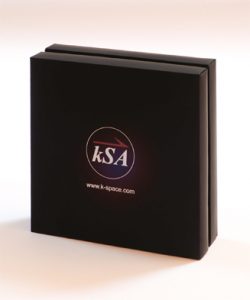
Imaging and Analysis System
Hardware features
- Option of either digital or analog high-resolution, Peltier cooled CCD imager with software-selectable exposure time. 60 or 110 frames/second, 10-bit digital acquisition capability, 12 bit up-grades available.
- Scientific-grade real-time image acquisition hardware, allowing real-time image display both on host computer monitor and optional auxiliary monitor.
- Optimized optics for RHEED imaging, allowing for zoom in and zoom out without compromising light flux.
- Flange mounting assemblies for a variety of vacuum chambers and flanges, concealing and protecting imager and optics and providing a light-tight environment.
- Optional analog and digital input and output boards for reading external input (from thermocouple, for example) or controlling external devices (process control system, for example).
- External triggering capability, including asynchronous reset for triggering precisely to external events, like substrate rotation. Includes fast shuttering up to 1/10,000 sec.
Software features
- Complete image archiving capability, storing image as well as image acquisition parameters (time, user comments, exposure time, image types, etc.)
- Up to 96-bit deep image storage, resulting in higher accuracy for integration control and frame co-adding.
- Real-time display of the following diffraction features (during growth, annealing, etc.):
- intensities (peak, average, centroid)
- lattice spacing
- FWHM/coherence
- line profile(s)
- analog input voltages
- RHEED-specific analysis routines, including algorithms for determining in-plane lattice spacing, in-plane coherence length, and deposition rate.
Image “filters”, including background subtraction, inelastic background subtraction, contrast maximization, high and low pass filters, false coloring, edge detection, 2D FFT, and more. - Optional user-programmable processing and analysis routines.
- Various types of image acquisition, including single image, multiple images, multiple regions, and movies. “Scan Mode” images naturally show diffraction pattern evolution and yield simple time-resolved diffraction analysis. All images and graphics may be exported to standard file formats, including .wmf, .bmp, .tif, .avi, and text files.
- Publication quality 2D and 3D graphics allow you to visualize diffraction data and fine-tune graphics by changing fonts, font sizes, labels, colors, palettes and axes.
- Online, context-sensitive user manual.


